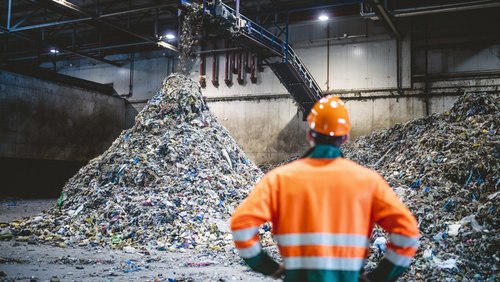The European Commission aims at further reducing illegal waste exports and is therefore revising its regulations. Legal waste shipment is an important step towards an efficient circular economy: it reduces resource utilization and saves CO2.

Circular economy: How waste shipments contribute to protecting the environment
Waste shipments usually have a negative reputation, yet they are indispensable: a resources-saving and sustainable circular economy ensures that as much waste as possible is recycled even beyond national borders. In this process, so-called secondary raw materials are produced, which save resources and reduce CO2 emissions. For the system to work, high environmental standards and fair regulations are needed. Hence, Export restrictions would not be helpful.
Waste is a popular trade commodity
In recent years, waste has become an increasingly popular trade commodity, primarily because recycling is more efficient in some countries than others, depending on the type of waste. In 2019, Germany imported about 5.6 million tons of waste subject to notification, which involves strict regulations and close monitoring. At the same time, Germany exported 4.4 million tons. The export volume has tripled in the past ten years and accounts for one percent of total German waste. 90 percent of this waste is exported to other European countries, mainly to Germany’s direct neighbors such as the Netherlands, France and Austria. Most of the waste exported is waste from treatment plants of waste and wastewater, for example sludges and slags, as well as construction and demolition waste. 97 percent of the exported waste is processed abroad, for example to recover metals or solvents.
Preventing illegal waste shipments
In the European Union, member states regulate exports, imports, and the transit of waste among themselves, while there are extensive EU regulations with non-EU countries. The European Green Deal requires the EU to stop exporting waste in the future, which is the reason why Brussels is preparing stricter regulations.
In 2019, German police recorded 251 cases of illegal waste shipments. According to the Federal Environment Agency most cases received fines of less than 200 euros. To stop this illegal trade stronger controls are needed. According to the Commission's plans, waste shipment should become more difficult in the future, at least outside the EU. The upcoming adaptions to the EU waste shipment regulation intends to ensure that secondary raw materials increasingly remain in the EU.
More on the topic
Financing the Sustainability Agenda
The EU has set legally binding targets for climate-neutrality by 2050. To succeed in the transition to a low-carbon economy, companies need to continuously develop new and improved climate-friendly technologies, and to adopt or move towards low-carbon business ...
IW
Due Diligence - Effect of Supply Chain regulation: Data-based results on the effects of the German Supply Chain Act
After the agreement of the European Parliament and the Council of the EU in December 2023, a few formal steps remain to introduce the Corporate Sustainability Due Diligence Directive (CSDDD).
IW